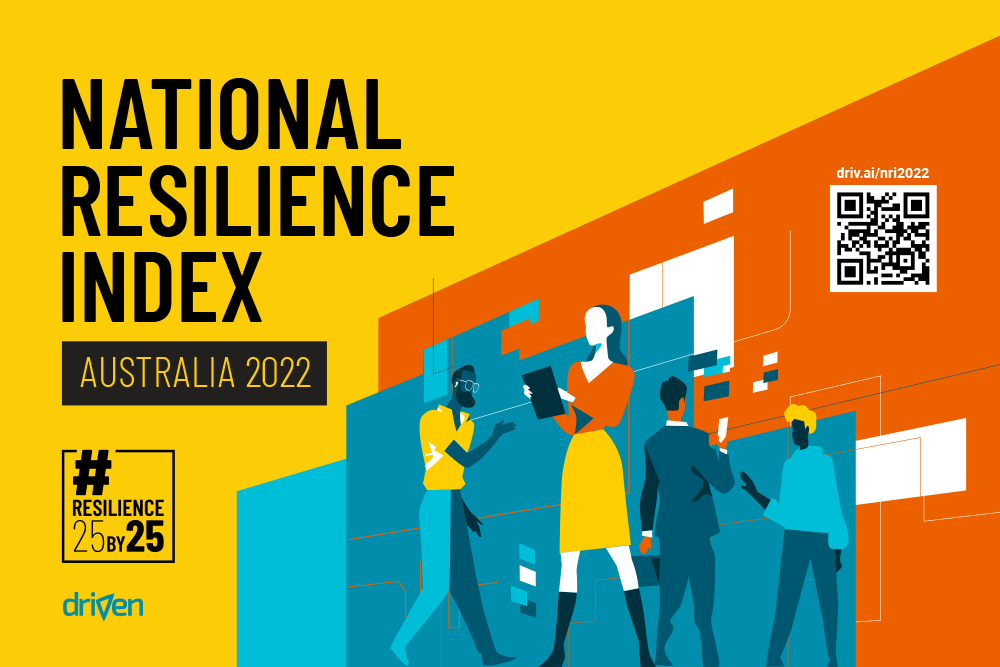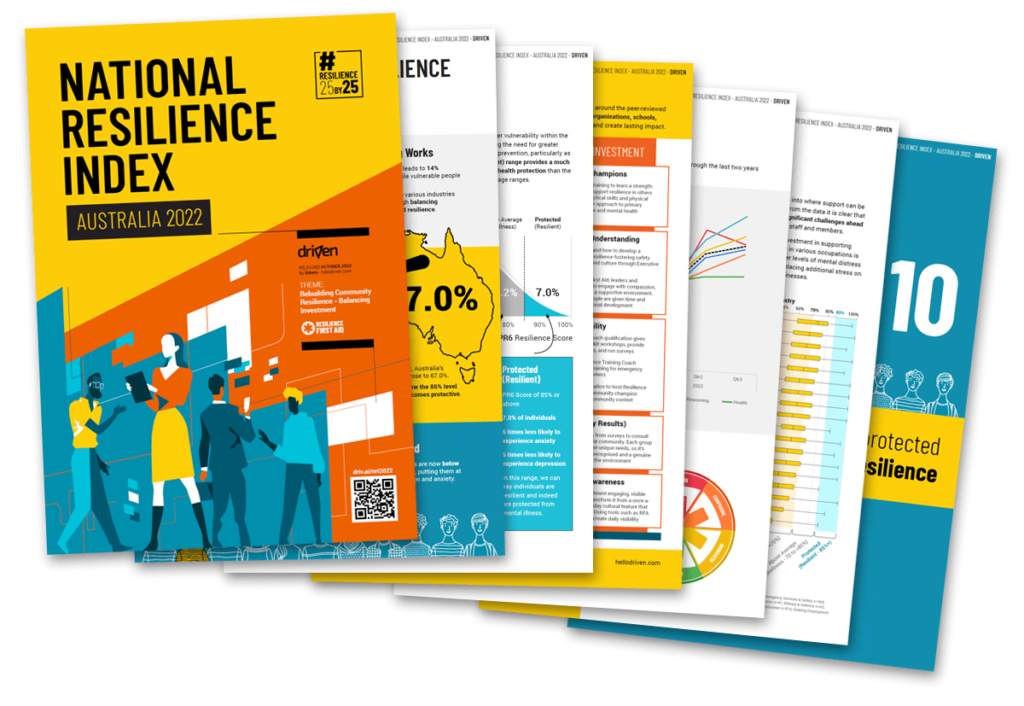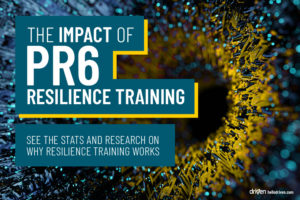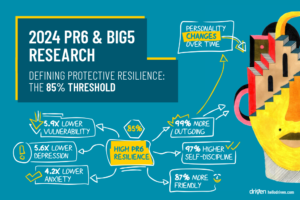Driven’s new National Resilience Index Report for 2022 is officially released.
The report tracks Australia’s evolving resilience response through the challenges of the last to years, focusing particularly on recent events with Omicron, Russia & Ukraine, and ongoing floods.
Highlights from the report:
- In Q4 of 2021, Australia saw a new low in resilience, coming down to 62.1% nationally (page 29)
- By Q3 of 2022, national resilience recovered to 67% (page 29)
- Vulnerable people saw major improvement through resilience training – 52% improvement in 180 days (page 19)
- We set out a community resilience toolkit, showing how to balance investment in resilience to create connected resilience (page 26)
- Comparing Australia with the United States, we see a major divergence, with the US scores falling nearly 10% below Australian levels (page 37)
- In the All Industries Comparison, we see students and job seekers among those struggling the most (page 43)
The theme of this report is Rebuilding Community Resilience – Balancing Investment. The concept of this is to focus on how we can rebuild our connection following the disruption of the pandemic, and how we need to balance the effort investment to create resilience through connection.
We explore this concept in more detail, show what it means to develop this concept of connected resilience with communities, organisations, and various settings.
The resilience imperative continues as we still see that less than 1 in 10 people are at a protected level of resilience. We continue with our goal of Resilience25by25 – a call to businesses and government to work together to improve Australia’s national resilience by 25% by 2025.
For more information, get in touch on our Contact page




